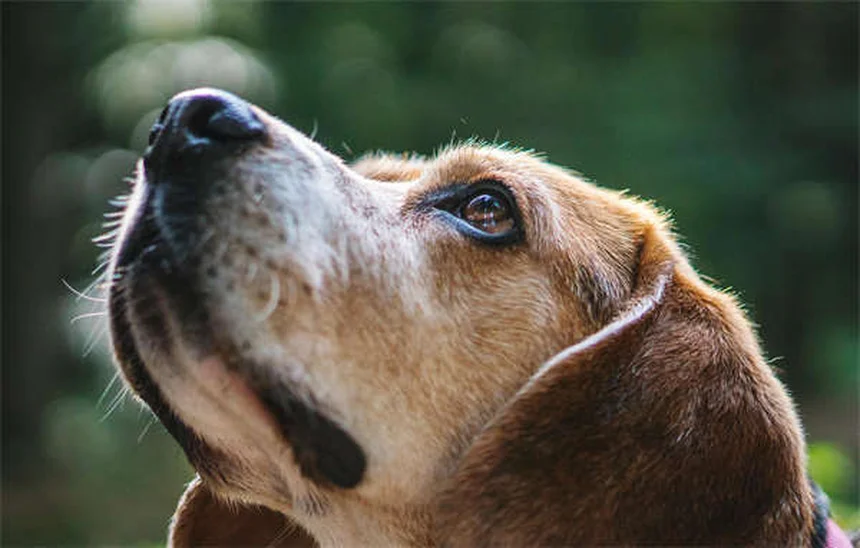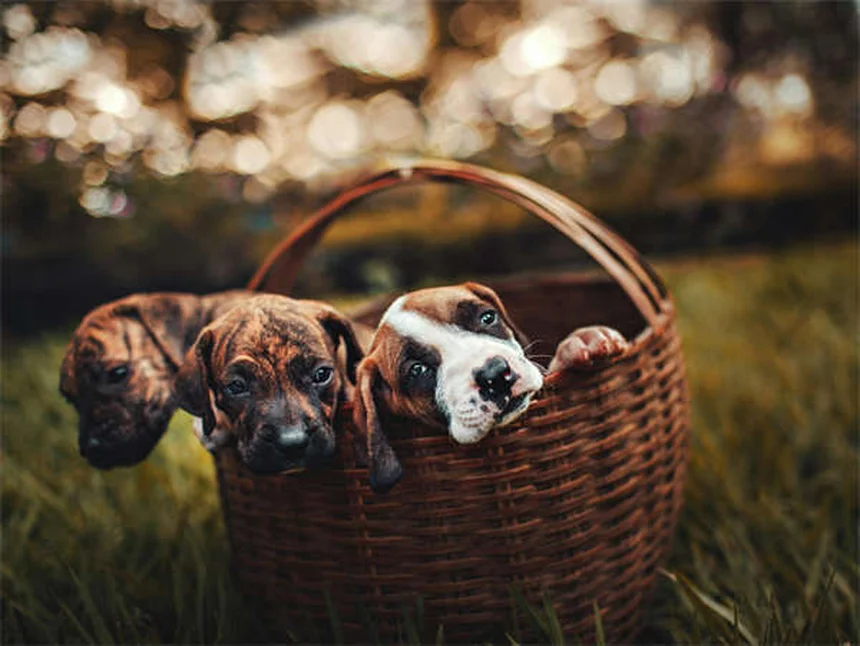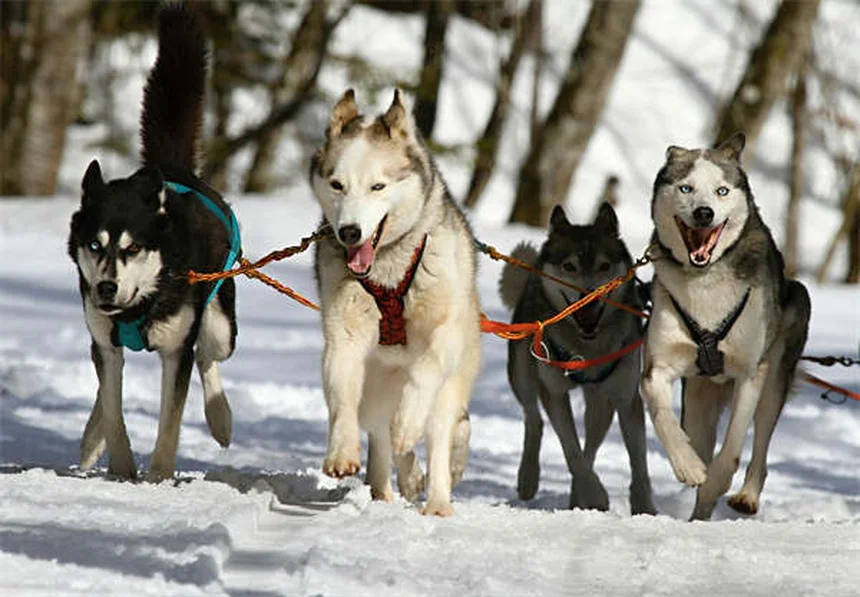Is your pet suffering from dry mouth? The answer is: Dry mouth in pets is more serious than most owners realize. We often joke about dog slobber, but that saliva actually plays crucial roles in your pet's health. Without enough moisture, your dog or cat can develop painful dental disease, infections, and trouble eating. I've seen too many pets suffer needlessly because owners didn't recognize the early signs.Here's what you need to know: Dry mouth (or xerostomia) happens when the salivary glands stop working properly. It can be caused by medications, dehydration, or serious conditions like immune disorders. The good news? There are ways to manage it - from simple home remedies to veterinary treatments. In this guide, we'll walk through the warning signs you shouldn't ignore and the best solutions to keep your pet comfortable.
E.g. :Artificial Insemination in Horses: A Complete Guide for Breeders
Advertisement
- 1、Why Dry Mouth in Pets is a Big Deal
- 2、What's Causing Your Pet's Dry Mouth?
- 3、Spotting the Signs Before It Gets Bad
- 4、Fighting Back Against Dry Mouth
- 5、Prevention Beats Treatment Every Time
- 6、Living With Chronic Dry Mouth
- 7、The Hidden Dangers of Pet Dehydration
- 8、Creative Hydration Solutions
- 9、The Emotional Impact on Pets
- 10、When to Seek Professional Help
- 11、Long-Term Management Strategies
- 12、FAQs
Why Dry Mouth in Pets is a Big Deal
Saliva – The Unsung Hero
Let's be honest – nobody enjoys getting slobbered on by their dog. But here's the thing: your pet's drool is actually a superhero in disguise. That sticky stuff helps break down food, makes swallowing easier, and keeps their mouth healthy. Without enough saliva, your furry friend could develop serious dental problems and infections.
Think about the last time you had cotton mouth after a night out. Now imagine feeling that way all the time. That's what pets with xerostomia (fancy vet talk for dry mouth) experience. It's not just uncomfortable – it can lead to bigger health issues if we don't address it.
What's Causing Your Pet's Dry Mouth?
Common Culprits You Can Fix
Sometimes the causes are simple. Dehydration tops the list – is your pet drinking enough water? Certain medications like antihistamines or sedatives can also dry out their mouth. If you notice your pet licking their lips constantly after starting new meds, that's a red flag.
Here's a quick comparison of common medications that might cause dry mouth:
| Medication Type | Likelihood of Causing Dry Mouth |
|---|---|
| Antihistamines | High |
| Diuretics | Moderate |
| Sedatives | High |
| Pain Relievers | Low |
 Photos provided by pixabay
Photos provided by pixabay
Tougher Cases That Need Vet Attention
Now for the more serious stuff. Radiation treatment for head/neck cancers can damage saliva glands permanently. Autoimmune disorders where the body attacks its own saliva glands (similar to Sjögren's syndrome in humans) require special meds to manage.
Ever heard of dysautonomia? It's rare but nasty – the nervous system basically starts failing, leading to dry mouth among other symptoms. Nerve damage from injuries or tumors can also knock out saliva production.
Spotting the Signs Before It Gets Bad
Early Warning Signals
Your pet can't tell you their mouth feels like the Sahara, but they'll show you. Watch for:
- Thick, sticky drool (or no drool at all)
- Bad breath that could knock you over
- Constantly licking lips or smacking gums
Did you know dry mouth can make eating painful? If your usually food-obsessed dog suddenly acts like you're serving cardboard, dry mouth might be the culprit.
When It's Gone Too Far
Left untreated, things get ugly fast. We're talking cracked tongues, mouth infections, and teeth rotting out. Severe dental disease becomes almost guaranteed without enough saliva to wash away bacteria.
Here's a scary thought: What if your pet couldn't swallow properly? That's the reality for some severe cases. Food gets stuck, leading to choking hazards or aspiration pneumonia.
Fighting Back Against Dry Mouth
 Photos provided by pixabay
Photos provided by pixabay
Tougher Cases That Need Vet Attention
First rule: always check with your vet. They might adjust medications causing the issue or prescribe pilocarpine to jumpstart saliva production. For autoimmune cases, immunosuppressants can help.
Regular dental cleanings become non-negotiable. We're talking professional cleanings every 6-12 months, possibly with extractions if teeth are too far gone. It's pricey but cheaper than treating the infections that follow neglect.
Home Care That Actually Works
You've got options to make your pet more comfortable:
- Pet-safe mouthwashes (human ones are toxic!)
- Water additives that fight plaque
- Daily tooth brushing – yes, really
- Wet food or adding water to kibble
Pro tip: Try freezing low-sodium chicken broth into ice cubes. The cold helps soothe their mouth while encouraging hydration. My dog goes nuts for these!
Prevention Beats Treatment Every Time
Simple Habits That Make a Difference
Keep multiple water bowls around the house and clean them daily. Add a pet water fountain – many animals drink more from moving water. Monitor medication side effects closely.
Ever considered your pet's dental treats? Look for ones with the VOHC seal of approval. They actually help scrape plaque while stimulating saliva flow.
 Photos provided by pixabay
Photos provided by pixabay
Tougher Cases That Need Vet Attention
If you notice symptoms lasting more than a couple days, don't wait. Early intervention prevents permanent damage. Your vet might recommend:
- Blood tests to check for systemic issues
- Oral exams under anesthesia
- Saliva production tests
Remember – you're not being paranoid. Dry mouth might seem minor, but it's often the first sign of bigger problems. Trust your gut when something seems off with your furry family member.
Living With Chronic Dry Mouth
Making Mealtimes Manageable
For pets with permanent conditions, mealtime adjustments help. Soak dry food until mushy or switch to wet food entirely. Warm it slightly to enhance smell (they'll appreciate this if their sense of taste is affected).
Raise food bowls to make swallowing easier. Add water or broth to create a gravy-like consistency. Small, frequent meals prevent overwhelm.
Keeping Comfortable Long-Term
Invest in a humidifier near your pet's favorite spots. Dry air makes symptoms worse. Keep artificial saliva products (yes, they make these for pets!) on hand for flare-ups.
Most importantly? Be patient. Pets with chronic dry mouth might be grumpy or less playful. They're not giving you attitude – they're uncomfortable. Extra cuddles and understanding go a long way.
The Hidden Dangers of Pet Dehydration
More Than Just a Dry Mouth
You might think dry mouth is just an uncomfortable condition, but it's actually your pet's body screaming for help. Chronic dehydration can lead to organ damage over time. The kidneys, liver, and heart all suffer when there's not enough fluid circulating.
Ever notice how your dog pants more when dehydrated? That's because their body can't regulate temperature properly without enough moisture. It's like trying to cool a car engine without coolant - eventually something's going to break down.
The Domino Effect on Overall Health
One surprising consequence? Digestive issues. Without proper saliva, food doesn't break down as it should in the mouth, forcing the stomach to work overtime. This can lead to:
- Chronic acid reflux
- Poor nutrient absorption
- Unexplained weight loss
And here's something most pet owners never consider - dehydration affects brain function. Your pet might seem confused or disoriented simply because their brain tissue is drying out. Scary, right?
Creative Hydration Solutions
Beyond the Water Bowl
Let's face it - some pets are terrible at drinking water. My neighbor's cat would rather knock over the bowl than drink from it! Here are some unconventional but effective hydration boosters:
| Method | Best For | Effectiveness |
|---|---|---|
| Ice cube games | Dogs | High |
| Wet food toppers | Cats | Medium |
| Broth popsicles | Both | High |
| Running water fountains | Cats | Very High |
Have you ever tried adding tuna juice to your cat's water? It's like turning their drink into a fancy cocktail - suddenly they can't get enough!
Making Water Irresistible
The temperature of water matters more than you'd think. Many pets prefer cool (not cold) water, especially in warmer months. Try these pro tips:
Place multiple bowls around the house in quiet areas - pets often avoid drinking near loud appliances or high-traffic zones. Change the water at least twice daily, because stale water collects dust and hair that can deter drinking.
And here's a golden nugget: ceramic or stainless steel bowls stay cleaner than plastic, which can develop bacteria that makes water taste funky. Your pet's nose knows!
The Emotional Impact on Pets
When Discomfort Changes Behavior
Dry mouth doesn't just hurt physically - it affects your pet's mood too. Imagine trying to enjoy your favorite activities with a constant, nagging discomfort. That's why you might notice:
- Decreased interest in play
- Irritability when touched near the mouth
- Reluctance to eat even favorite treats
Is your usually affectionate cat suddenly antisocial? It might not be you - they could be avoiding interaction because mouth pain makes them grumpy. I've seen grumpier cats than my uncle at a family reunion!
Rebuilding Confidence After Relief
The good news? Once dry mouth is treated, many pets bounce back emotionally. But it takes patience. Start with gentle interactions and soft foods to rebuild positive associations.
Positive reinforcement works wonders here. When they show interest in food or play, reward them immediately with praise or gentle pets. It's like retraining their brain that good things happen around mealtime again.
When to Seek Professional Help
Red Flags You Shouldn't Ignore
While occasional dry mouth might not be alarming, these symptoms mean it's vet time:
- Thick, ropey saliva (or none at all)
- Visible discomfort when chewing
- Blood in the water bowl
- Sudden weight loss
Here's a question many owners struggle with: How do I know if it's serious? If symptoms last more than 48 hours or worsen despite home care, that's your answer. Better safe than sorry when it comes to our furry friends.
What to Expect at the Vet
Your vet will likely run several tests to pinpoint the cause. These might include:
Blood work to check organ function and hydration levels, oral exams under sedation (because let's face it, no pet enjoys mouth inspections), and possibly imaging if they suspect nerve damage or tumors.
The process might seem overwhelming, but remember - you're being the best pet parent by getting to the root of the problem. And hey, maybe your pet will score some tasty recovery treats afterward!
Long-Term Management Strategies
Creating a Hydration-Friendly Home
For pets with chronic conditions, small changes make a big difference. Try these household adjustments:
Place water bowls on every floor of your home. Use wide, shallow bowls for pets with facial pain (less neck stretching). Add non-slip mats under bowls to prevent spills that might discourage drinking.
And here's a game-changer: schedule water breaks just like you would potty breaks. Some pets need reminders to drink, especially older animals or those on certain medications.
Monitoring Without Obsessing
It's easy to become hyper-vigilant, but you don't need to hover over the water bowl 24/7. Instead, establish simple check-ins:
Note how often you're refilling the water bowl (sudden increases or decreases matter). Monitor urine output - more concentrated urine often signals dehydration. Check gum color and moisture when you brush their teeth.
Remember, you're not just a pet owner - you're part detective, part nurse, and all-around superhero for your furry companion. And that's something to be proud of!
E.g. :Dry Mouth in Pets: What to Do About It | PetMD
FAQs
Q: How can I tell if my dog has dry mouth?
A: Watch for these telltale signs: thick, sticky drool (or no drool at all), constant lip licking, and bad breath that could knock you over. Your pet might also start smacking their gums or show less interest in food. I always tell my clients - if your food-obsessed dog suddenly acts like you're serving cardboard, dry mouth could be the culprit. Check their mouth for dry, cracked gums or tongue. These symptoms mean it's time for a vet visit before more serious complications develop.
Q: What medications cause dry mouth in pets?
A: Many common pet meds can dry out their mouth. The worst offenders include antihistamines (like Benadryl), decongestants, diuretics, and sedatives. Even some pain meds can cause it. Here's my pro tip: If you notice your pet licking their lips constantly after starting new medication, that's a red flag. Always ask your vet about potential side effects - we can often adjust dosages or switch to alternatives that don't cause this uncomfortable side effect.
Q: Can dry mouth in cats lead to other health problems?
A: Absolutely, and this is why we take it so seriously. Without enough saliva, your cat can develop severe dental disease, painful mouth infections, and trouble swallowing. The worst cases lead to aspiration pneumonia when food goes down wrong. I've treated cats who stopped eating entirely because their mouths hurt so bad. That's why early intervention is crucial - simple solutions like water additives or prescription gels can prevent these nightmare scenarios.
Q: Are there home remedies for pet dry mouth?
A: Yes! Start with the basics: keep multiple clean water bowls around and consider a pet water fountain (many animals drink more from moving water). Try freezing low-sodium chicken broth into ice cubes - the cold soothes while encouraging hydration. My patients love these! You can also add water to dry food or switch to wet food. Just avoid human mouthwashes - they're toxic to pets. Instead, ask your vet about pet-safe oral care products.
Q: When should I worry about my pet's dry mouth?
A: If symptoms last more than 2-3 days, it's vet time. Same if you notice weight loss, bad breath, or behavior changes. Don't wait until you see cracked gums or rotting teeth - by then, the damage is done. As a vet, I'd rather see a pet too early than too late. We can run simple tests to check for underlying causes and get ahead of complications. Remember - you know your pet best. If something feels off, trust that instinct.

